Florida's K–12 schools provide a potential opportunity to increase market channel options for small- and mid-sized diversified farms, but processing, storage, and distribution resources are extremely limited for smaller producers. This 9-page document serves as a model and case study with steps for producers and other stakeholders to conduct a feasibility study before forming a cooperative to sell local fruits and vegetables to schools and other institutional food-service outlets. Written by Jonathan Adam Watson, Danielle D. Treadwell, Catherine Campbell, and Ray Bucklin, and published by the UF/IFAS Department of Agricultural and Biological Engineering, March 2021.
https://edis.ifas.ufl.edu/ae555
Category: Program Development
The Road to Recovery #5: Self-Assessment of Virtual Facilitation to Build Trust
This fifth publication in the Road to Recovery series discusses how Extension professionals can evaluate techniques to build trust when facilitating virtual programming. Specific recommendations are provided addressing concerns about short- and long-term virtual trust, inclusion techniques, Zoom fatigue, and cybersecurity. This new 5-page publication of the UF/IFAS Department of Agricultural Education and Communication was written by Colby Silvert, Cody Gusto, John Diaz, and Glenn Israel.
https://edis.ifas.ufl.edu/wc388
The Road to Recovery #4: Evaluating Virtual Techniques to Reach Clientele and Promote Equity
This fourth publication in the Road to Recovery series explores the challenges Extension professionals may encounter in reaching clientele virtually during a pandemic. This new 4-page publication of the UF/IFAS Department of Agricultural Education and Communication discusses the concept of digital equity and provides recommendations to evaluate efforts to access and connect with key audiences. Written by Colby Silvert, Cody Gusto, John Diaz, and Glenn Israel.
https://edis.ifas.ufl.edu/wc387
Conducting the Needs Assessment #3: Educator Motivations, Barriers, and Objections
This third publication in the Conducting the Needs Assessment series outlines a range of motivations, barriers, and common objections Extension educators and other service providers may have pertaining to needs assessments. It is not an easy task to conduct a needs assessment, yet there are many motives for implementing one. This new 4-page publication of the Department of Agricultural Education and Communication discusses strategies for increasing educator motivation and removing barriers and objections to conducting a needs assessment. Written by Matt Benge.
https://edis.ifas.ufl.edu/wc386
The Savvy Survey #6e: Understanding How Question Type Impacts Future Analysis
This publication will briefly look at how the intent of a survey affects which types of questions should be asked and how the data can be analyzed to help address this intent. It is intended to provide guidance to Extension professionals, as well as persons in community organizations, who conduct surveys for program planning, improvement, and evaluation. Written by Colleen E. Gariton and Glenn D. Israel, and published by the UF/IFAS Department of Agricultural Education and Communication.
https://edis.ifas.ufl.edu/pd083
Publicly Available Geographic Information Sources and Common Analysis Tools
Geographic information and geospatial data are vital in many practical fields, including precision agriculture, natural resources management, flood zone mapping and management, and environmental assessment. This 6-page publication introduces publicly available geospatial data, including elevation, land use, soil, satellite imagery, and other thematic maps and GIS software commonly used in spatial analysis. Written by Satbyeol Shin and Young Gu Her, and published by the UF/IFAS Department of Agricultural and Biological Engineering, January 2021.
https://edis.ifas.ufl.edu/ae550
Planning and Establishing On-Farm Field Trials
Planning and preparation can increase chances of successful outcomes from demonstration plots. This 5-page publication focuses on guiding the successful establishment of demonstration trials and is targeted to county, regional, and state specialized Extension faculty who aim to develop on-farm research and demonstration sites as part of their programs. Written by Marcelo Wallau, Esteban Rios, and Ann Blount, and published by the UF/IFAS Agronomy Department, January 2021.
https://edis.ifas.ufl.edu/ag447
The Road to Recovery #3: Facilitating Community Resilience for Effective Pandemic Response
This third publication in the Road to Recovery series provides information and recommendations to support Extension professionals’ ability to facilitate capacity building and resilience development for communities during COVID-19 and potential future pandemic situations. This new 5-page publication of the UF/IFAS Department of Agricultural Education and Communication was written by Cody Gusto, Colby Silvert, and John Diaz.
https://edis.ifas.ufl.edu/wc380
The Road to Recovery #1: Introduction
This first publication in the Road to Recovery series provides a brief introduction to some core concerns and considerations for Extension professionals as they adapt their outreach, education, and evaluation efforts during a pandemic and recovery. This new 3-page publication of the UF/IFAS Department of Agricultural Education and Communication also includes an overview of the subsequent articles in the Road to Recovery series. Written by Cody Gusto, Colby Silvert, and John Diaz.
https://edis.ifas.ufl.edu/wc379
The Road to Recovery: Building Physical and Emotional Trust when Engaging with Extension Clientele
Now is a crucial time for Extension professionals to engage with clientele. In both urban and rural communities, clients are facing a multitude of unprecedented challenges related to COVID-19. Many Extension professionals already have experience in emergency and disaster preparedness, response, and recovery that can be applied in the present context. However, we must rethink how we interact with and assist clientele to ensure their safety and our own. To do this, it is critical we understand that the pandemic has exacerbated emotional trauma and anxiety resulting in trust gaps. This new 4-page publication of the UF/IFAS Department of Agricultural Education and Communication aims to build Extension professionals’ sensitivity to the needs and emotional strains that COVID-19 presents for clients, and the strategies needed for effective recovery. Written by Colby Silvert, Cody Gusto, and John Diaz.
https://edis.ifas.ufl.edu/wc376
Online Sources for Sea Level Rise Education and Extension
The impacts of sea level rise on ecosystems and natural resources are a major concern in Florida, especially in low-lying coastal areas such as south Florida. Sea level rise can impact many aspects of Florida's economy, including urban development, agriculture, infrastructure, and natural areas. This 16-page document introduces, evaluates, and summarizes selected available online sources and tools to educate diverse stakeholders and concerned local residents on important aspects of sea level rise. Written by Young Gu Her, Ashley Smyth, Jiangxiao Qiu, Elias Bassil, Ulrich Stingl, and Laura Reynolds, and published by the UF/IFAS Department of Agricultural and Biological Engineering, June 2020.
https://edis.ifas.ufl.edu/ae543
Using Social Media to Engage Communities with Research: SMART Social Media: Planning for Success
This new 6-page publication of the Department of Agricultural Education and Communication focuses on developing social media plans. The intended audience is individuals (e.g., scientists wishing to share their research), organizations, or people who work on grant-funded research projects. In this article, we provide evidence-based strategies for designing, developing, and implementing social media plans to share science research with others inside and outside of the professional scientific community. While the design, development, and implementation of social media may vary, we provide general strategies that are applicable across contexts. Written by Lisa Lundgren, Kathryn A. Stofer, Kirsten Hecht, and Tyus D. Williams.
https://edis.ifas.ufl.edu/wc362
Using Social Media to Engage Communities with Research: Basics
This new 7-page publication of the Department of Agricultural Education and Communication defines social media, presents reasons for using it to share science, and identifies multiple platforms available for use now. We provide an introduction to and overview for a series on getting the most out of social media for sharing science or STEM, including agricultural research. Our primary goal is to assist people working through social media to broaden the community engaged with research. The series includes additional publications on social media planning, evaluating social media engagement, and social media for branding, among other topics. Written by Kathryn A. Stofer, Lisa Lundgren, Kirsten Hecht, and Tyus D. Williams.
https://edis.ifas.ufl.edu/wc361
Understanding Extension for School-Based Agricultural Education #1: Extension 101
This article and series were designed primarily for use by secondary agriscience teachers in school-based agricultural education programs (SBAE) to help build a strong understanding of Extension and the role of Extension professionals. An important part of access and use of Extension services is understanding its background, structure, and function. This initial publication in the Understanding Extension for School-Based Agricultural Education series provides agricultural educators and the general public with a basic understanding of Extension. This new 4-page publication of the Department of Agricultural Education and Communication was written by Debra Barry, John Diaz, Alyssa Shepherd, Jennifer Patton, and Stephen Gran.
https://edis.ifas.ufl.edu/wc372
Cooperative Unit Systems: 1. Introduction and Raising Market Animals in a Group Setting
Traditionally, organizations such as 4-H have encouraged youth to participate in market animal projects as a way of increasing youth participation and introducing youth to production agriculture. As the demographics shift to a more urban clientele base for 4-H, there are new barriers of entry to market animal projects that were not seen in generations past. To address these barriers of entry, systems such as cooperative animal units have been set up. This 3-page document discusses components and limitations of cooperative animal units. Written by Alyssa Schortinghouse, and published by the UF/IFAS 4-H Youth Development Department, August 2020.
https://edis.ifas.ufl.edu/4h408
Leading Difficult Conversations Series #1: Introduction
This publication series examines strategies and tactics for leaders to utilize when tasked with having a difficult conversation. Leadership can require leaders to have necessary conversations that are not always easy. Through providing leaders with specific tools to have difficult conversations, this series aims to promote dialogue and equip individuals to be more successful leaders. The series provides information regarding preparing for difficult conversations, creating a safe conversation environment, utilizing conversation tactics, and employing listening skills. This new 2-page publication of the UF/IFAS Department of Agricultural Education and Communication is part 1 of the series. Written by Christy Chiarelli.
https://edis.ifas.ufl.edu/wc374
Strategically Selecting Behaviors That Impact the Problem: An Approach Drawn from Social Marketing
Extension professionals and other practitioners address a wide variety of complex issues by providing education and encouraging behavior change using innovative strategies. The importance of prioritizing potential behaviors and selecting those with high expected impact cannot be overemphasized. However, behavior selection can be complicated because there are many solutions for any problem in a particular context. Using an approach drawn from social marketing to develop activities aimed at changing or maintaining people’s behavior, Extension professionals and other practitioners can prioritize behaviors by mathematically calculating anticipated weights that will help focus efforts around key behaviors with the potential to make the greatest impact. This new 6-page publication of the UF/IFAS Department of Agricultural Education and Communication provides an overview of a process to collect and analyze the impact and the likelihood of adoption to help Extension professionals decide on behaviors for a campaign or intervention. Written by Laura A. Warner and John M. Diaz.
https://edis.ifas.ufl.edu/wc375
Don’t Fake It, Make It! Best Practices for Attending Virtual Events
Continuing the Don’t Fake It, Make It! series to make the most out of virtual conferences and meetings, this fact sheet provides tips specific to attendees. Up to this point, the series has focused largely on the process a host should go through before launching a virtual event. This new 4-page publication of the UF/IFAS Department of Agricultural Education and Communication shifts the focus from virtual host to virtual participant to allow attendees of the virtual event to get the most out of the experience. While the spotlight is on attending virtual conferences in particular, the suggestions included can translate to other virtual meeting spaces. Written by Jarred A. Shellhouse and Lauri M. Baker.
https://edis.ifas.ufl.edu/wc373
Considering Participants’ Personal Wellness in Conservation-Based Extension Programs: Opportunities for Integrative Development and Evaluation
Extension organizations are at the forefront of water resource issues, using educational programs to drive participant behaviors towards water conservation. The effectiveness of these efforts centers on designing programs with considerations of the factors that will change relevant decisions and behaviors among residential landscape water users. We conducted a statewide study to explore the concept of wellness and well-being, and these characteristics’ relationship to water conservation behaviors. Our results show that psychosocial measures influence current and future residential landscape water conservation behaviors differently. Perception of well-being is the more consistent predictor for both current behaviors and future intentions. These results demonstrate an opportunity for those focused on environmental behaviors to pair and embed programs focused on personal well-being to empower communities to work toward achieving conservation goals.
https://edis.ifas.ufl.edu/wc370
Exemplary Youth Leadership Series: Enable Others to Act
This publication series is designed to outline strategies and experiences to expose youth to and engage them with leadership concepts. In this new 2-page publication of the UF/IFAS Department of Agricultural Education and Communication, students will try on aspects of the fourth practice of exemplary leaders: enable others to act. Two quick, low-cost activities are included for implementation with youth. These activities are best suited for students ages 10–18. However, modifications are included for each of the activities to allow for different group sizes, ages, and abilities of the youth participating. Written by Megan Stein.
https://edis.ifas.ufl.edu/wc369
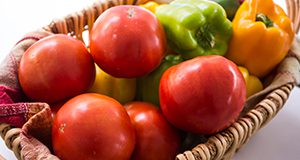
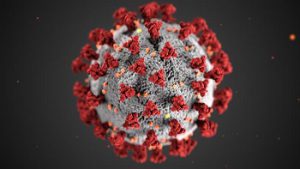

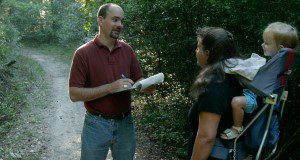

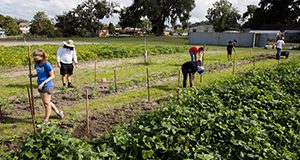
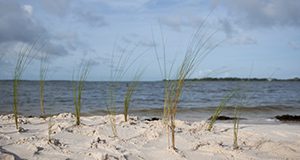
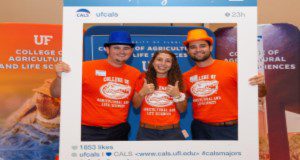


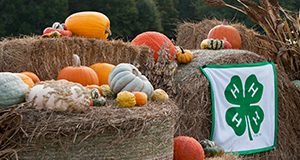

![[Impact × Current adoption levels × Likelihood] = Weight; A social marketing approach to prioritizing potential behaviors for an intervention.](https://edis-news.ifas.ufl.edu/wp-content/uploads/2020/10/wc375-300x160.jpg)


